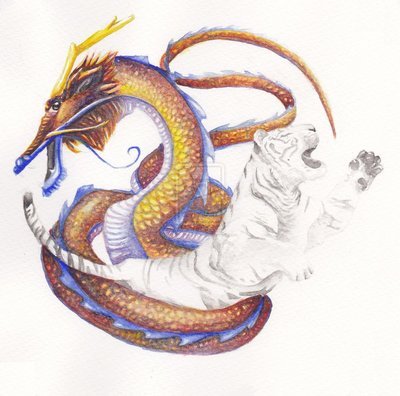Sylph
From Wikipedia, the free encyclopediaSylph 出身地:德国中译名希尔芙。风的元素精灵。空气的精灵,以及由此派生出的风之精灵之意。拉丁语[sylva(森林)]和希腊语[nympe(妖精)]...Jump to: navigation,searchFor other uses, see Sylph(disambiguation).| This articleneeds additional citations for verification.Please help improvethis article by addingcitations to reliable sources. Unsourced material may bechallenged and removed. (February2013) |
| (Sylphid) | |
|---|---|
| Grouping | Mythological |
| Sub grouping | Air spirit, Elemental |
| Similar creatures | Angels, Fairies |
| Mythology | Western tradition |
| Habitat | Air |
Sylph (also called sylphid) is a mythologicalspirit of the air.[1]The term originates in Paracelsus, whodescribes sylphs as invisible beings of the air, his elementals ofair.[2]There is no known substantial mythos associatedwith them.
Contents
Alchemyand literature[edit]
As alchemy derived from theSwiss German alchemist Paracelsus, alchemists and relatedmovements, such as Rosicrucianism,continued to speak of sylphs in their hermeticliterature.
The first mainstream discussion of sylphs comes with AlexanderPope.[citationneeded] In Rape of theLock, Pope satirizes FrenchRosicrucian and alchemical writings when he invents a theory toexplain the sylph. In a parody of heroic poetry and the "dark" and"mysterious" alchemical literature, and in particular the sometimesesoterically Classical heroic poetry of the 18th century in Englandand France, Pope pretends to have a new alchemy, in which the sylphis the mystically, chemically condensed humors of peevishwomen. In Pope's poem, women who are full of spleen and vanityturn into sylphs when they die because their spirits are too fullof dark vapors to ascend to the skies. Belinda, the heroine ofPope's poem, is attended by a small army of sylphs, who foster hervanity and guard her beauty.
This is a parody of Paracelsus, inasmuch as Pope imitates thepseudo-science of alchemy to explain the seriousness with whichvain women approach the dressing room. In a slight parody of thedivine battle in Pope's Rape of the Lock, when the Baron ofthe poem attempts to cut a lock of Belinda's hair, the sylphsinterpose their airy bodies between the blades of the scissors (tono effect whatsoever). Ariel, thechief sylph in The Rape of the Lock, has the same name asProspero's servant inShakespeare'sTheTempest.
Willow, in Terry Brooks'MagicKingdom of Landover series is a sylph and the wife ofprotagonist Ben Holiday. She isthe daughter of the River Master and a wood elemental, giving herpale green skin and emerald hair. Her dual nature is reflected inthe fact that she must transform into a Willow tree once every 21days to maintain her life force. She has a tense and distantrelationship with her father, as her existence serves as apermanent reminder to him of the brief relationship he desires toreclaim, but never can. And so it is to her mother that she turnsfor guidance.
Fairylink[edit]
Because of their association with the ballet LaSylphide, where sylphs are identified with fairies and themedieval legends of fairyland, as well as a confusion with other"airy spirits" (e.g., in William Shakespeare's AMidsummer Night's Dream), a slender girl may be referred toas a sylph.

Sylph has passed into general language as a term forminor spirits, elementals, or faeries of the air. Fantasyauthors will sometimes employ sylphs in their fiction, for examplecreating giant artistic clouds in the skies with airywings.[3]
Seealso[edit]
References[edit]
- ^"sylph". Oxford Dictionaries. OxfordDictionary. Retrieved 11December 2013.
- ^"sylph - definition of sylph". The FreeDictionary. Retrieved 11December 2013.
- ^John Grant and John Clute,TheEncyclopedia of Fantasy, "Elemental" p 313-4, ISBN0-312-19869-8
| ||||||||||||||||||||||||||||||||||||||||||||||||||||||||||||||||||
 爱华网
爱华网



